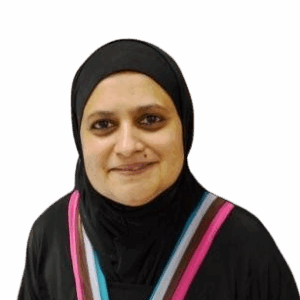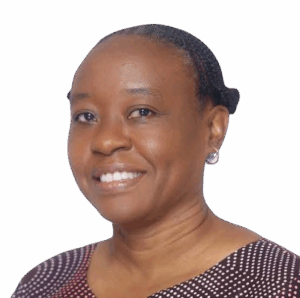Antimicrobial Resistance – Genomes, Big Data and Emerging Technologies
23–25 March 2026
Wellcome Genome Campus, UK and Virtual
Highlighting the importance of genomic data in the fight against AMR
Summary
Antimicrobial resistance (AMR) is a major challenge in our globalised world, and tackling it will take the combined resources and continued effort of researchers working across disciplines. Technical advances in recent years continue to expand our ability to collect vast amounts of genomic information on pathogens, and a wealth of data is being collected in epidemiological and surveillance studies, including on the socio-economic implications of the burden of AMR.
Our 5th conference in this series will bring together basic science researchers, clinicians, computer scientists, and policymakers interested in pathogen genomics, epidemiology, surveillance, and machine learning to explore the recent advances and current challenges of the field.
This year’s programme will reflect the field’s growing complexity and dynamic response to the global health challenge of AMR. We will highlight surveillance innovations, novel therapeutics, pioneering anti-AMR strategies, advances in point-of-care technologies and diagnostics, the variety of non-susceptibility phenotypes, and lessons learned from non-bacterial microorganisms. The role of big data and emerging technologies in driving insights and accelerating progress across these areas will also be a key theme.
This conference will be a hybrid meeting – with onsite or virtual attendance. In addition to invited talks from global leaders, the programme will include short oral presentations selected from abstracts, posters, poster pitch talks and networking opportunities.
Programme
The conference will start at approximately 13.00 on Monday, 23 March and close at approximately 13.00 on Wednesday, 25 March 2025. All times are in GMT. See the time where you are here.
Discussions will focus on a variety of exciting topics, including:
- Big data and antimicrobial use
- Epidemiology and surveillance innovations
- Antimicrobial resistance beyond bacteria
- Innovations in diagnostics and infection prevention
- Novel therapeutics and anti-AMR strategies
- Surviving antimicrobials: persistence, tolerance, resilience
Organisers and speakers
Scientific programme committee

Kate Baker
University of Cambridge, UK

Sylvain Brisse
Institut Pasteur, France

Sabiha Essack
University of KwaZulu-Natal, South Africa

Yonatan Grad
Harvard University, USA
Keynote speakers

Iruka Okeke
University of Ibadan, Nigeria

Gerry Wright
McMaster University, Canada
Confirmed speakers

Nathalie Balaban
Hebrew University of Jerusalem, Israel

Amelia Barber
Friedrich Schiller University Jena, Germany

Susanna Dunachie
University of Oxford, UK

Sarah Fortune
Harvard University, USA

Simani Gaseitsiwe
Botswana Harvard AIDS Institute, Botswana

Kat Holt
London School of Hygiene and Tropical Medicine, UK

Miriam Huntley
Day Zero Diagnostics, USA

Zamin Iqbal
University of Bath, UK

Sonja Lehtinen
University of Lausanne, Switzerland

Paul Turner
Cambodia-Oxford Medical Research Unit (COMRU), Cambodia

Paul Turner
Yale University, USA

Willem van Schaik
University of Birmingham, UK
Organisers – Wellcome Connecting Science

Nagehan Ramazanoglu Bahadir
Programme developer

Mel Sharpe
Event organiser
Registration and accommodation
Registration deadline: 24 February (in person) | 17 March 2026 (virtual)
| In-person Registration |
Fee |
| Student/trainee | £410 |
| Academic/non-profit organisation | £515 |
| Healthcare professional | £515 |
| Commercial/for-profit organisation | £620 |
| Onsite accommodation | £228 |
The in-person registration fee includes:
- Full access to scientific programme: oral and poster presentations, and networking on campus
- Access to the online conference portal to network with online participants
- Meals (lunch and dinner) and refreshments during the conference. Breakfast will be provided for delegates who have booked onsite accommodation.
- Recordings of the live-stream sessions, which will be available ‘on-demand’ for four weeks after the event ends
| Virtual Registration | Fee |
| Delegates from LMICs* | Free |
| Student/trainee | £55 |
| Academic/non-profit organisation | £105 |
| Healthcare professional | £105 |
| Commercial/for-profit organisation | £165 |
Virtual registration fee includes:
- Access to the virtual event portal (Log in details will be emailed a few days before the event starts)
- Live-stream sessions, including posters and online networking channels
- Recordings of the live-stream sessions, available ‘on-demand’ for four weeks after the event ends.
* To promote more inclusive scientific discussions with international colleagues at our conferences, virtual delegates based in Lower and Middle-Income Countries can register for free (see list of countries here).
If you are an editor or journalist, please contact the conference organiser for more information about the discounted fee or media pass.
Accommodation
Booked accommodation is for the nights of 23 and 24 March 2025.
Please note: there is limited onsite accommodation and this will be allocated on a first-come, first-served basis; therefore, early registration is recommended.
If you wish to book campus accommodation either side of the conference dates, please contact the Hinxton Hall Conference Centre directly.
Accommodation services phishing scam – please be vigilant. More information.
Travel visas
Please check the UK government website for advice on whether you will need a visa or an electronic travel authorisation and how to obtain one: https://www.gov.uk/standard-visitor.
Confirmed attendees requiring a letter to support a visa application should contact our events team.
Financial assistance
Bursaries
Bursary deadline: 1 December 2025
Wellcome Connecting Science offers registration bursaries (usually up to 50% of the registration fee) to those who would benefit from attending the conference but face financial barriers to attending events.
Priority will be given to PhD students/trainees, applicants from lower and middle income countries, or those from underrepresented/minoritised groups. Other early career researchers will be considered if funds allow.
To apply for funding support, please register and then select that you want to apply for a bursary. This will direct you to the online application form. Please explain why you need support and how you will benefit from attending the conference. Once you have submitted the application form, you will be emailed an abstract portal link. Please use this to submit your abstract before bursary deadline.
Applications without abstracts will only be considered in exceptional circumstances.
Additional funding opportunities
Visit our support page for information on financial support, including carer grants to help delegates with the costs of caring for children or dependent family members while attending a course or a conference.
Abstracts
Abstract deadline: 15 December 2025
We welcome abstracts from all areas relevant to the main themes of the meeting, for both oral and poster presentations. Several oral presentations will be chosen from the abstracts submitted. Presenters of oral presentations are expected to be onsite for the duration of the conference, whereas those presenting posters can do so in person or virtually.
To submit an abstract, you must first register for the conference. Once your registration is completed, you will be emailed a link to submit to the abstract submission portal. If you wish to edit your abstract following submission, please use the link in the abstract acknowledgement email.
All abstracts must be submitted and, if desired, edited by the deadline. The scientific programme committee will then assess your abstract and you will be notified about 2 weeks after the deadline whether you have been selected to present an oral or poster presentation. If you require acknowledgment that your abstract has been accepted earlier than this, please contact the event organiser.
Poster boards onsite will accommodate 118 cm high by 84 cm wide (A0-portrait) of printed material. Accepted abstracts will appear in the conference programme book; poster board numbers will be allocated at the conference.
All those accepted for a poster presentation will also have the opportunity present a ~1 min ‘poster pitch’ summarising their work.
Sponsors
If you are interested in supporting this meeting, please contact us.
For more information about the benefits of having a presence at this meeting, see our sponsorship page.
Keynote lectures from 2024 meeting
Legal and social ecologies of resistance
Keynote lecture by Kevin Outterson, Boston University, USA.
Applying novel diagnostic approaches to the prevention and control of AMR
Keynote lecture by Deborah Williamson, UK Health Security Agency, UK and University of Melbourne, Australia.

